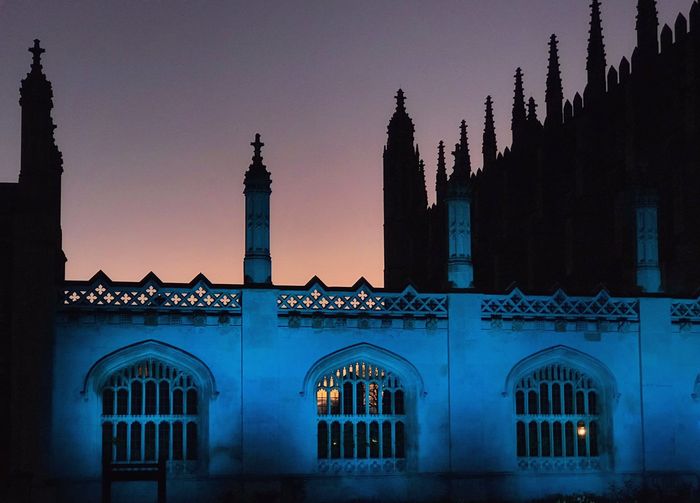Cambridge academics’ COVID-19 test set to be used at Addenbrooke’s
The Department of Medicine’s Dr Helen Lee and Professor Ravi Gupta have led the efforts on the new ‘SAMBA II’ test, which can obtain a diagnostic in under 90 minutes

Cambridge academics are leading the development and evaluation of a new diagnostic test for COVID-19 which can detect infection in under 90 minutes - and are set to be rolled out at Cambridge hospitals imminently.
Associate Professor in the Department of Haematology Dr Helen Lee, who is also CEO of the Cambridge spinout company Diagnostics for the Real World, led the development of the test. Professor Ravi Gupta from Cambridge’s Institute for Therapeutic Immunology and Infectious Disease headed the ‘COVIDx’ clinical study evaluating the impact of the test.
The news comes as the number of confirmed cases of COVID-19 surpassed 1 million worldwide today, while UK cases have jumped to 33,718, while Health Minister Matt Hancock this afternoon announced increased testing amid mounting criticism.
It also follows the University’s Vice Chancellor announcing to students today he had received a letter from the Government’s Chief Medical Adviser Sir Patrick Vallance thanking all Cambridge academics who have been providing expert advice to the government.
The first ten of the 100 of the new ‘SAMBA II’ machines, which administer the test and will soon all be launched nationwide, have been donated to Addenbrooke’s. Healthcare workers will be able use the tests on themselves, and to quickly refer patients who test positive to relevant wards.
“Testing healthcare workers could help reduce the risk of infection in healthcare facilities themselves, which might in turn assist national control efforts,” said Gupta.
“It will also reduce the number of staff self-isolating for symptoms as we could use the test to determine who is actually infected. At present the lack of testing is resulting in severe staff shortages nationally.”
Users of the Samba II provide a nasal and throat swab, in which the test is able to find tiny traces of the genetic material of the virus by amplifying them billions of times and ultimately detect active infections. The test is now approved by Public Health England, and can diagnose COVID-19 with 98.7% accuracy.
Its rapidity contrasts with current tests, which have to be sent off to centralised laboratories and can take one to two days to get a result, partly due to sheer demand for diagnostics.
“Our goal,” says Dr Lee, “has always been to make cutting-edge technology so simple and robust that the SAMBA machine can be placed literally anywhere and operated by anyone with minimum training.”
The efforts were made possible through £2.4mn funding from philanthropist Sir Chris Hohn - and support from Wellcome, the US National Institutes of Health and Cambridge Enterprise. Cambridge Trust, proprietor of the hospitals including Addenbrooke’s, has also pledged to match the donation of machines with an additional ten.
 Comment / Cambridge’s tourism risks commodifying students18 April 2025
Comment / Cambridge’s tourism risks commodifying students18 April 2025 News / Cambridge student numbers fall amid nationwide decline14 April 2025
News / Cambridge student numbers fall amid nationwide decline14 April 2025 News / Greenwich House occupiers miss deadline to respond to University legal action15 April 2025
News / Greenwich House occupiers miss deadline to respond to University legal action15 April 2025 Comment / The Cambridge workload prioritises quantity over quality 16 April 2025
Comment / The Cambridge workload prioritises quantity over quality 16 April 2025 Sport / Cambridge celebrate clean sweep at Boat Race 202514 April 2025
Sport / Cambridge celebrate clean sweep at Boat Race 202514 April 2025






